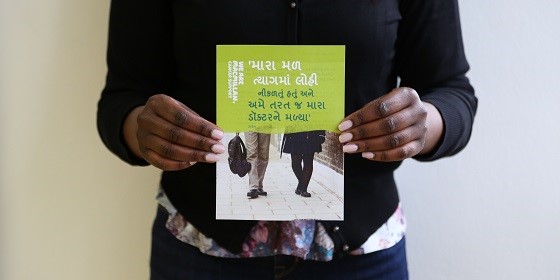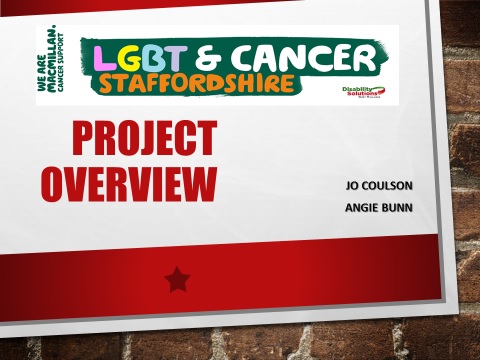Dying Matters Week in Staffordshire was celebrated by a Palliative and End of Life Conference organised by University Hospitals of North Midlands on Thursday 11th May. The Conference was entitled “I didn’t want that: Why patients’ wishes matter” and was attended by over 250 delegates from across the Midlands. BJF had a stand to promote the dementia and cancer advocacy projects and was therefore able to join the Conference.
There were some eminent speakers including Dr Sara Russell, Head of Research and Clinical Innovation at Hospice UK, who showed a very thought provoking film from zdoggmd; “Ain’t the way to die” which you can find at https://www.youtube.com/watch?v=NAlnRHicgWs
Sara’s message was that professionals should be asking “What matters to you?” rather than “What’s the matter with you?”
Amanda Cheesley, Professional Lead Long Term Conditions and End of Life Care with the Royal College of Nursing followed on and very much reiterated Sarah’s messages. She opened by talking about the “essence” of the person – who we are, what we are – doesn’t go away when someone dies or is dying. We should look at what is important to people emotionally, physically and spiritually.
Jan Cooper, Regional Liaison Advisor at the General Medical Council discussed the End of Life/ Palliative Care Guidance. Decision making should be a partnership and this will require a change of culture. At one time professionals made the decisions, then it swung to patients making the decision but it should be co-production – joint decision after listening, discussing and sharing information.
After lunch there were two more “professionals “ presentations from Claire Henry – the Chief Executive Officer of the National Council for Palliative Care and Dr Katherine Bristowe , a post-doctoral researcher at the Cicely Saunders Institute, Kings College, London. She has a particular interest in widening access to palliative care, and recently worked on the ACCESSCare project (funded by Marie Curie), a national qualitative interview study of LGBT people facing advanced illness and bereavement.
At this Conference the best was most definitely left until the end. The Conference closed with a presentation from Tommy Whitelaw, Project Engagement Lead for Dementia Carer Voices. He was a carer for his late mother Joan for 5 years as she had vascular dementia. He told us about his beautiful mother, Joan Whitelaw, NOT the disruptive lady in bed 6! He talked about his experiences with health professionals during his time as a carer and the importance of reassuring carers that they are doing a wonderful job. Tommy travels across Scotland to raise awareness of the impact of dementia on families and the importance of empowering carers to carry out their difficult but vital role. Lessons to be learnt for people caring for someone with any terminal condition. There was not a dry eye in the Conference!
Joe Potts, Macmillan End of Life Care Facilitator, UHNM is to be congratulated on a stimulating, thought provoking conference – a job really well done.
Kath Curley
Project Manager



 To all our Volunteers – Well Done and Thank You!
To all our Volunteers – Well Done and Thank You!



You must be logged in to post a comment.